
New CNN drone footage: Shows destruction outside of Kyiv

New CNN drone footage shows destruction outside of Kyiv
From CNN’s Mitchell McCluskey and Laura Oliverio
New CNN drone footage shows the extent of destruction in Horenka, outside of Kyiv, Ukraine.
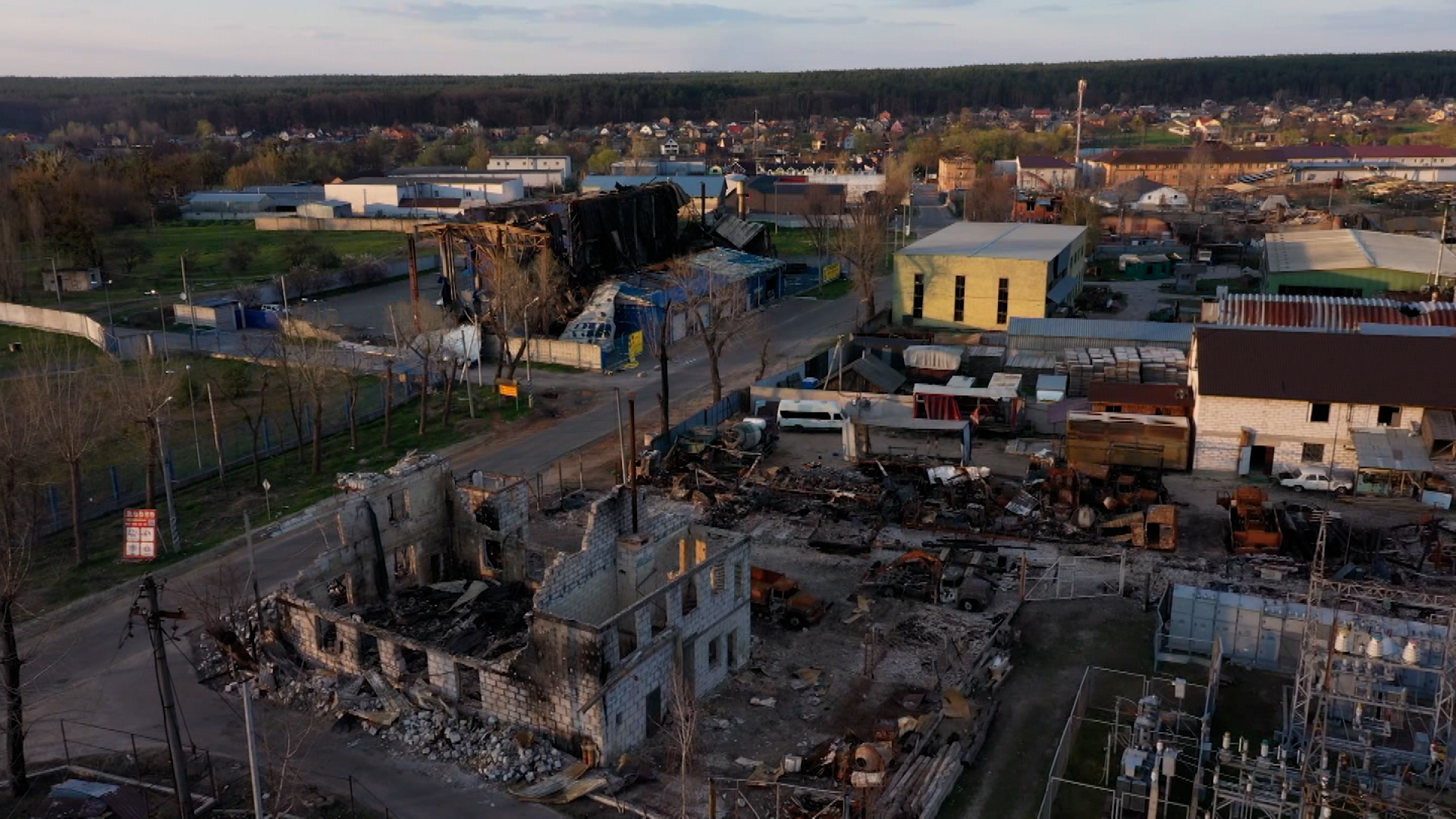
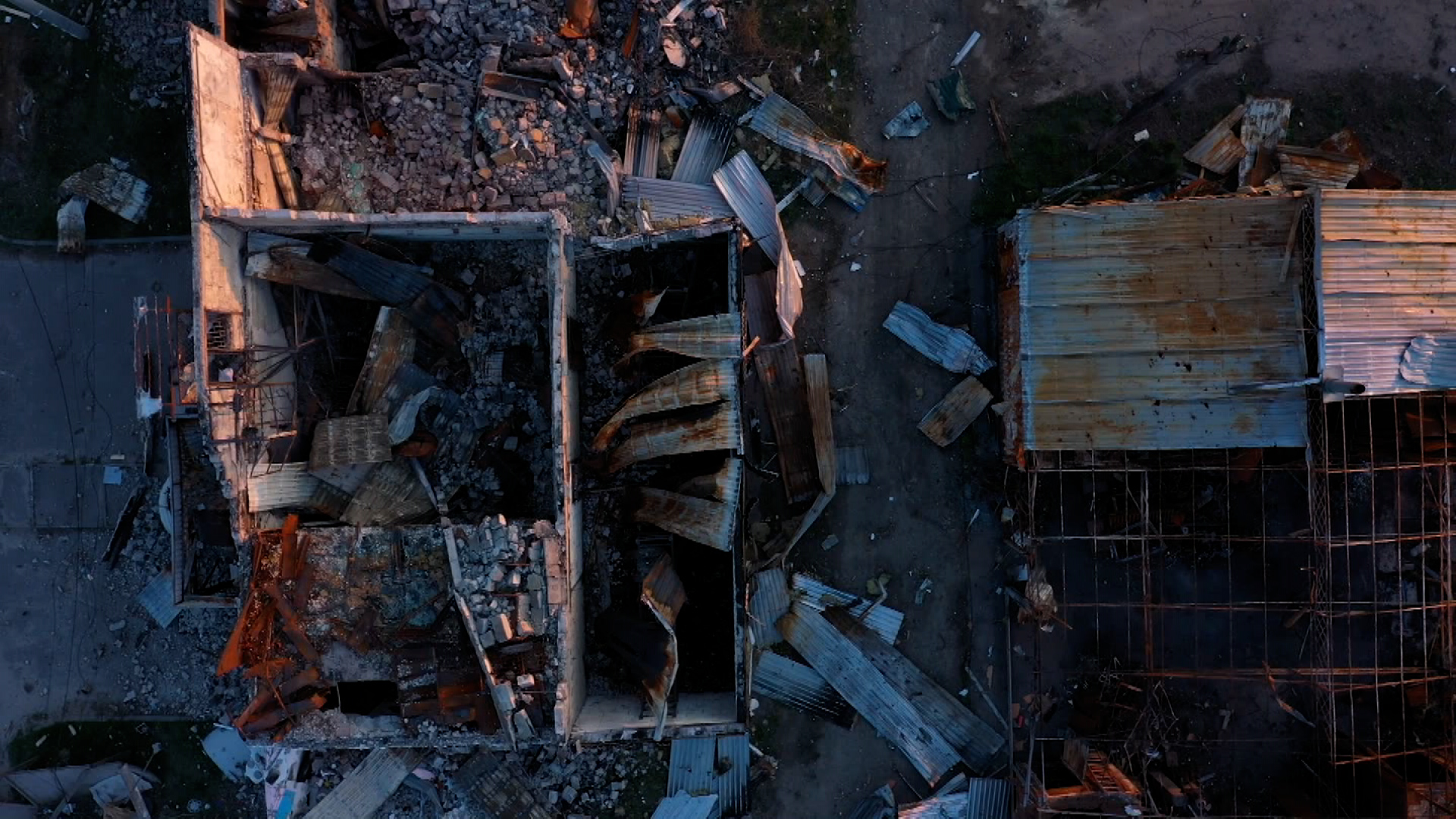
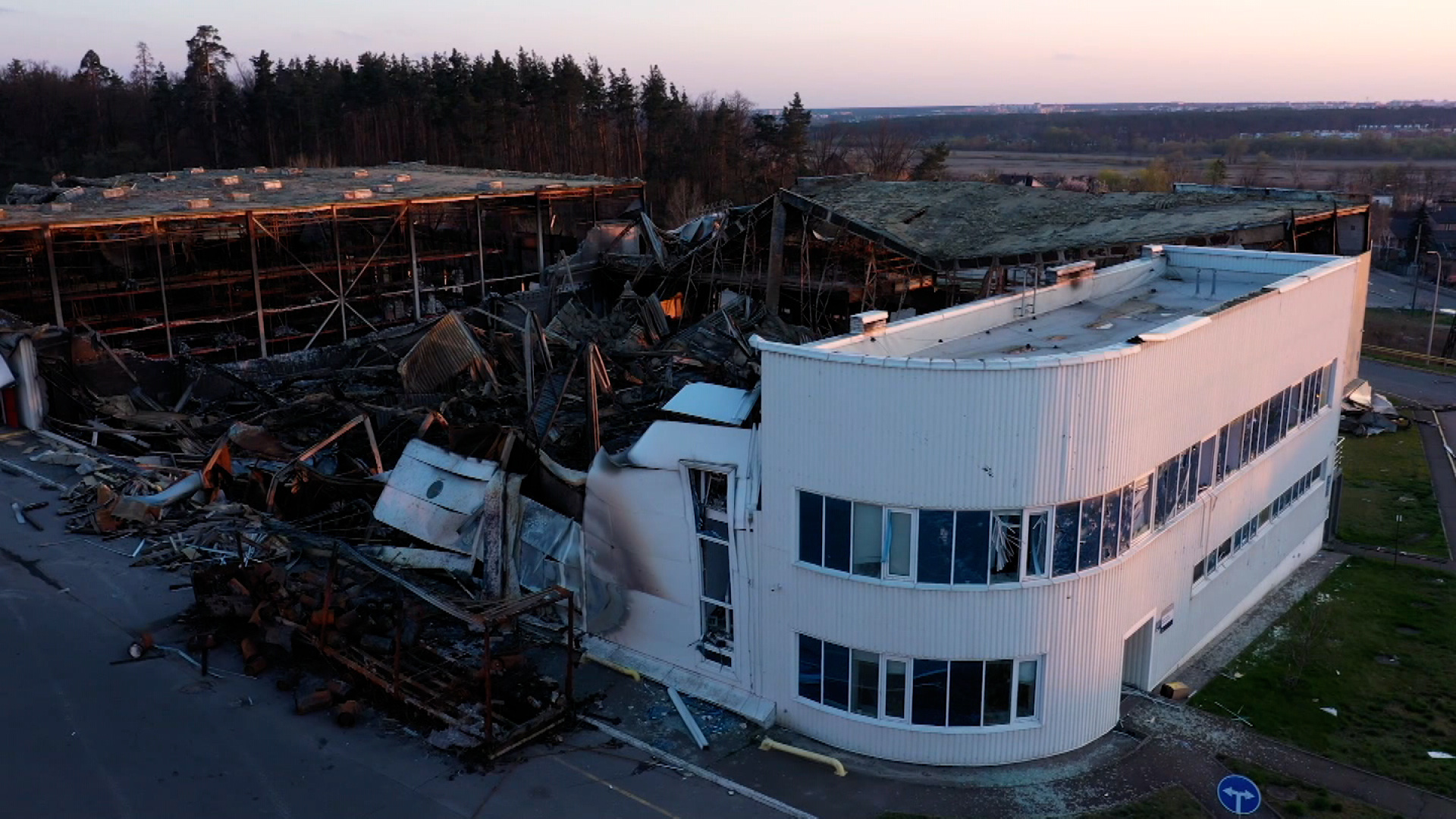
Clarissa Ward on Navalny: “The Kremlin has done everything within its means to try to stop him”
From CNN’s Janelle Davis
CNN chief international correspondent Clarissa Ward worked closely with Alexey Navalny and his team to investigate the people behind the poisoning.
She spoke to CNN’s Ana Cabrera about the investigation and the mistakes made by the Russian intelligence team.
Q: Why does he pose such a threat to Russian President Vladimir Putin that he wants him either in prison or dead?
A: A lot of people have been really confused, as to why President Putin has gone to such lengths to prevent Navalny from doing his work. The easy answer, I think, is that he has exposed the rampant corruption in Russia and he has mobilized a huge amount of support online, particularly with young people.
And there’s a sense that President Putin doesn’t have any tolerance for any real political opponents. You might remember that Boris Nemtsov was assassinated just a few hundred meters away from the Kremlin some years ago.
It’s a dangerous business getting involved with opposition in any way, shape or form in Russia. And Alexey Navalny is the single most galvanizing force that the opposition has had in many years. So, I think for those reasons, the Kremlin has done everything within its means to try to stop him.
Q: You worked closely with Navalny and his team as you investigated the assassination attempt against him. What was the most surprising thing you uncovered?
A: I think the most surprising thing, honestly, was to see how Russian Security Services Forces (the FSB) were in many ways very sloppy in their tradecraft.
The extraordinary moment of this documentary is when Navalny actually calls one of his would-be assassins on an open line posing as a senior aide to the National Security Council. And this man, who he speaks to him, actually ends up spilling the beans, believing Navalny, his claim to be the senior administration official, and telling the details of how the poisoning was done — the sprinkling of the poison in his underwear. And it’s this moment where your jaw drops because you realize sometimes there’s an aura of invincibility around Putin’s Russia and this sort of machiavellian slick image that he has cultivated. But we found time and again multiple instances where they were doing things other security services would be shocked at.
To give you one more example, one of the would-be assassins actually made a call — opened his cell phone the night that Navalny was poisoned from a hotel just a few blocks away from where Navalny was. And this is what made it possible for Bellingcat and the Navalny team with us and some others to put together the pieces of the puzzle.
Read more:
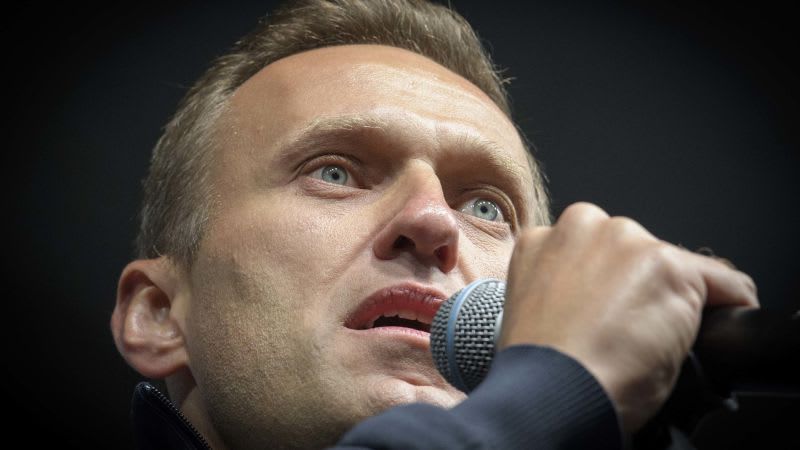
Tune in tonight at 9 p.m. ET to watch the CNN Film “Navalny” on CNN.
Russian forces forming for ‘offensive’ in Kherson region, Kryvyi Rih military chief says
From CNN’s Kostan Nechyporenko in Kyiv and Nathan Hodge in Lviv
The military head of the south-central city of Kryvyi Rih said Sunday that Ukraine had observed preparations for a possible offensive by Russian forces from the Kherson region, adding defenses were being bolstered in the area.
In televised remarks, Oleksandr Vilkul said Russian forces were “forming an offensive strike formation in our direction in the Kherson region. We are waiting for their possible transition to the offensive in the coming days. But we know more about them than they think; we understand all their plans; and we are fully prepared for any development in the situation.”
Vilkul said the Krivyi Rih garrison was in a state of readiness and had defenses prepared.
“A lot of work continues to help in evacuating people from the frontline zone,” he said. “Kryvyi Rih is providing buses and ambulances. We have provided medical assistance and social workers. But people are going out on bicycles and taking old people and children out in wheelbarrows.”
Earlier this week, a top Russian general said Moscow plans to establish “full control” over southern Ukraine in the second phase of its invasion of Ukraine.
Kremenchuk hit by nine missiles, Ukrainian regional military governor says
From CNN’s Mariya Knight
Dmytro Lunin, head of the Poltava Regional Military Administration, said Sunday nine Russian missiles struck the central Ukrainian city of Kremenchuk.
“Already nine Russian missiles have hit Kremenchuk’s infrastructure this evening,” Lunin said. “The enemy has no regard, even on such a holy day.”
Most Ukrainians observed Easter celebrations on Sunday. Lunin gave no further details about the consequences of the strikes.
CNN’s “Navalny” premieres tonight. So where is he now?
From CNN’s Stephanie Halasz and George Ramsay
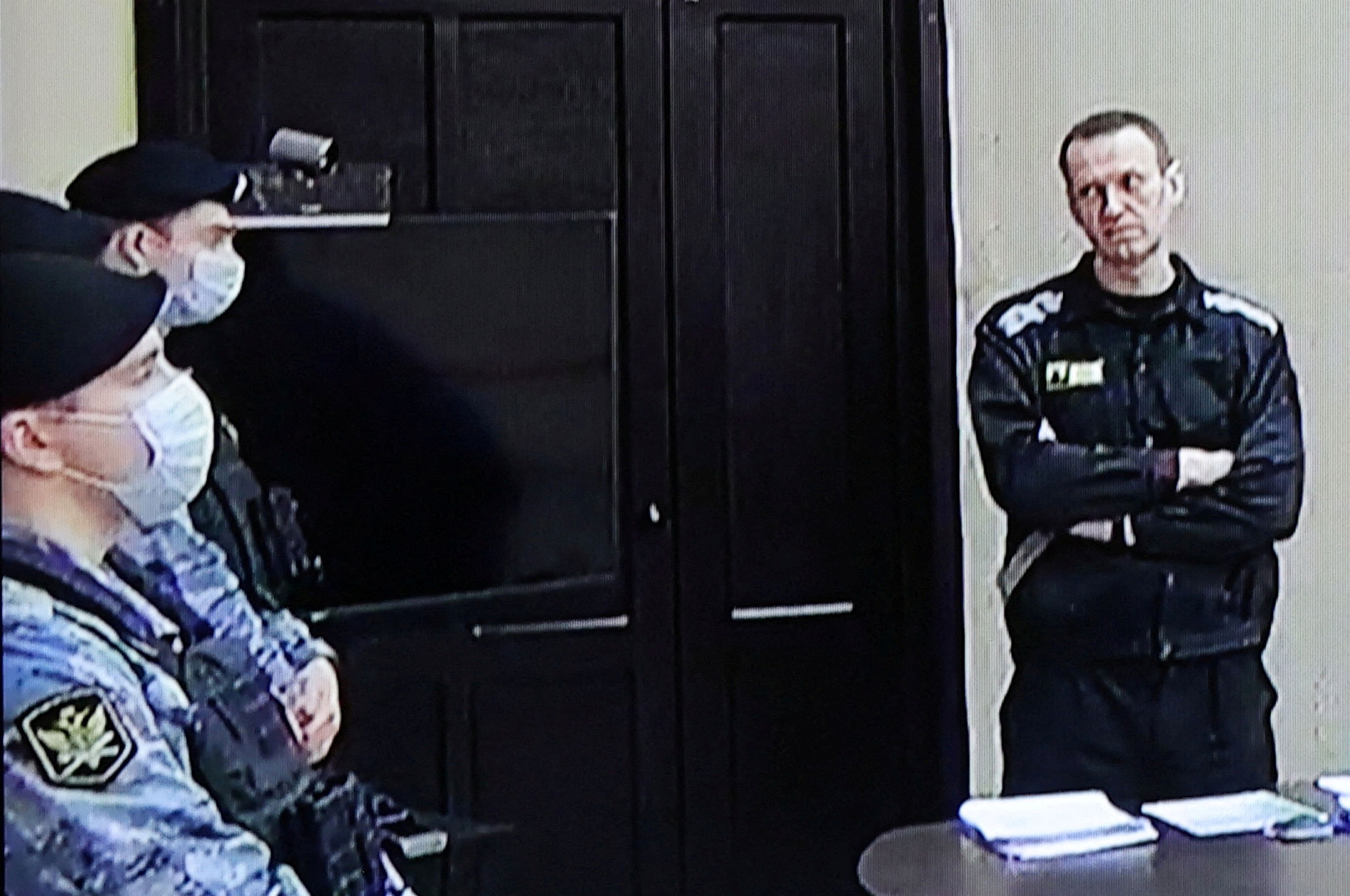
Russian opposition leader Alexey Navalny was sentenced to nine years in a maximum-security jail in March, according to Russian state-owned news agency Tass. He was convicted on fraud charges by Moscow’s Lefortovo court over allegations he stole from his Anti-Corruption Foundation.
Navalny, 45, was previously serving a two-and-a-half-year sentence in a detention center east of the Russian capital after being arrested in February 2021 for violating probation terms, a verdict he said was politically motivated.
After the sentence was announced, Navalny wrote on Twitter: “9 years. Well, as the characters of my favorite TV series ‘The Wire’ used to say: ‘You only do two days. That’s the day you go in and the day you come out.'”
He added: “I even had a T-shirt with this slogan, but the prison authorities confiscated it, considering the print extremist.”
The Russian state-owned news agency RIA reported that Navalny will appeal the guilty verdict, according to his lawyer.
Click here to read the full story.
Tune in tonight at 9 p.m. ET to watch the CNN Film “Navalny” on CNN.
Go behind-the-scenes with the director of CNN’s “Navalny”
From CNN Audio
The new CNN Films documentary “Navalny” chronicles the aftermath of top Russian opposition leader Alexey Navalny’s poisoning, allegedly carried out by Russian agents (a charge the Kremlin denies).
CNN Audio talked with the film’s director, Daniel Roher, about how he was able to obtain intimate access to Navalny and his family, why it’s important to him for Russians to see the movie and what Putin’s response to Navalny can tell us about his invasion of Ukraine.
Here are some highlights from the Tug of War podcast:
Daniel Roher on what made Navalny a captivating subject:
“Navalny’s greatest asset, I think, is his willingness to talk about anything. There was nothing that was off-limits when we interviewed him. There was nothing that I couldn’t ask him about, that he wouldn’t discuss. And I think that openness really comes through in the film.”
Daniel Roher on Putin’s response to his documentary:
“Putin was personally furious about the film and ordered it to be taken down from Russian torrent sites.”
Daniel Roher on his hopes for Navalny:
“I think if you spend enough time working with Navalny, you learn to have hope and optimism for the future, no matter how bleak things can be. And what I hope is that Alexey Navalny is able to one day get out of prison and that he is able to compete in a competitive, free and fair democratic election for the Russian presidency.”
Click here to listen to the Tug of War episode.
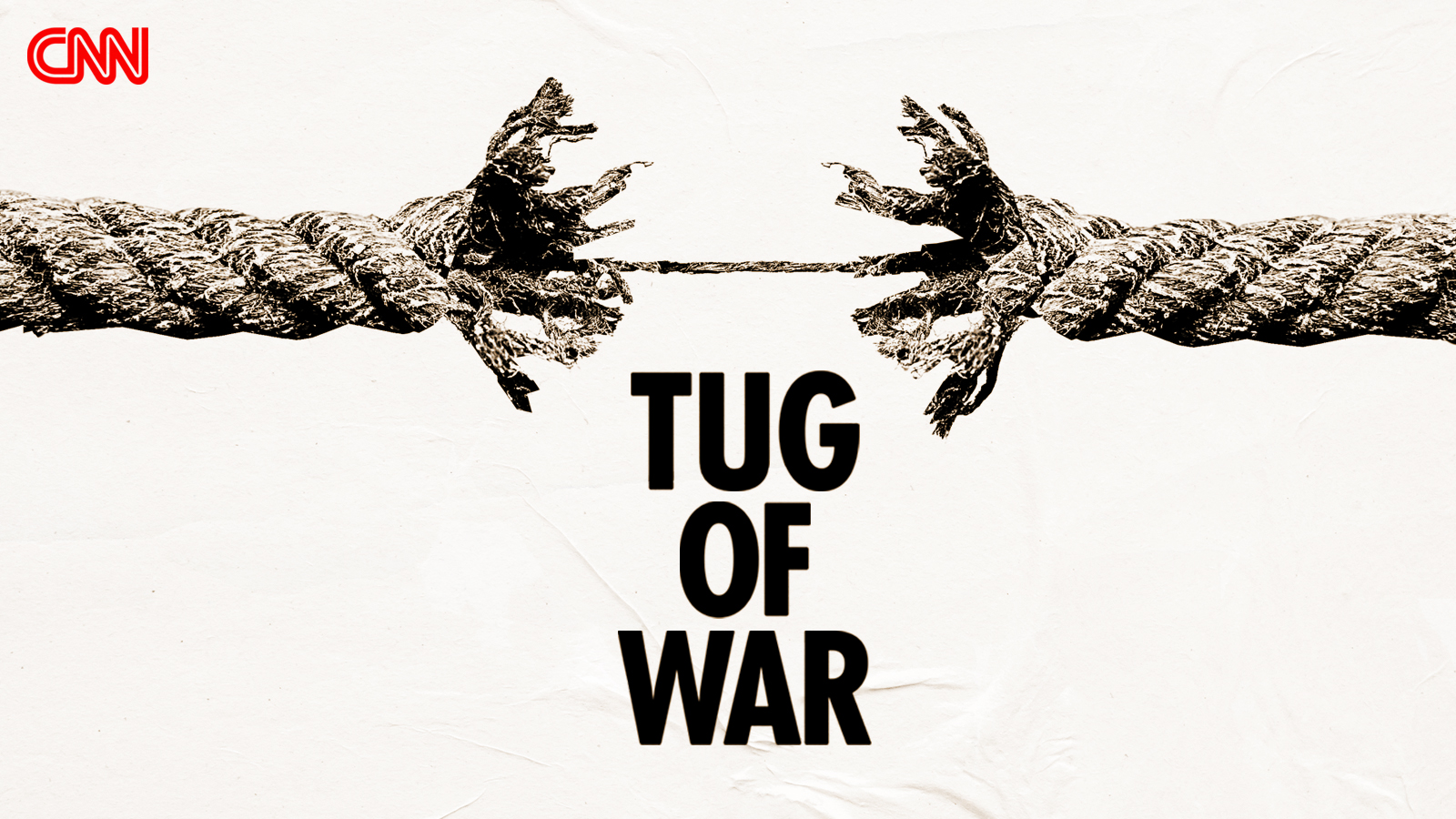
Tune in tonight at 9 p.m. ET to watch the CNN Film “Navalny” on CNN.
Ukrainian official: Evacuation corridor for Mariupol not opened Sunday
From CNN’s Yulia Kesaieva in Lviv
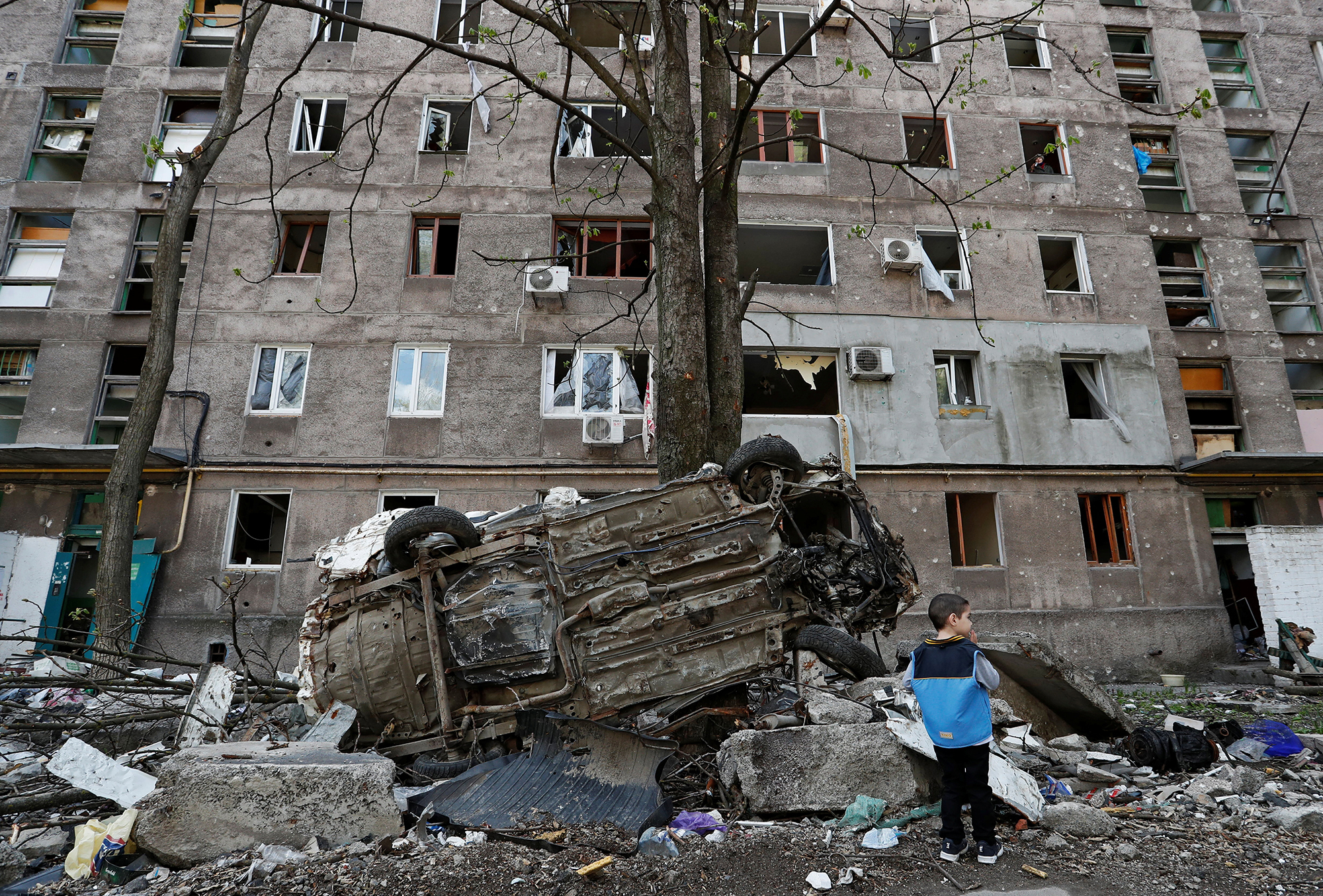
Ukrainian Deputy Prime Minister Iryna Vereshchuk said that a evacuation corridor for Mariupol was not opened Sunday because the Russian side did not guarantee a ceasefire.
“We could not open humanitarian corridor for Mariupol, as Russia did not confirm the guarantee of a ceasefire regime,” Vereshchuk said in remarks on national television. “We will try again tomorrow.”
Vereshchuk expressed hope that the United Nations could broker a humanitarian evacuation, saying, “I think the UN should have been and should be the most effective now [in providing evacuation corridors]. António Guterres, the UN Secretary-General, is going to visit Moscow sometime around April 26. We are not asking anymore, we are demanding the UN ensure a ceasefire regime and providing a humanitarian corridor from Azovstal [a steel factory that is a last stronghold for Ukrainian forces] — it’s important to emphasize this, and from Mariupol as well — because there are currently 1,000 women and children in Azovstal now. Plus 500 or more wounded, 50 of whom require urgent medical care. And this is what Mr. Guterres should say in Moscow if he considers talking about peace.”
Guterres is expected to travel to Moscow Tuesday. The UN secretary-general is also expected to travel next week to Ukraine, where he is expected to meet with President Zelensky on Thursday, according to a UN spokesperson.
The International Committee of the Red Cross (ICRC) on Sunday said that “immediate and unimpeded humanitarian access” to the besieged Ukrainian city of Mariupol is “urgently needed.”
How to watch the CNN film “Navalny”
From CNN’s Foren Clark and Janelle Davis
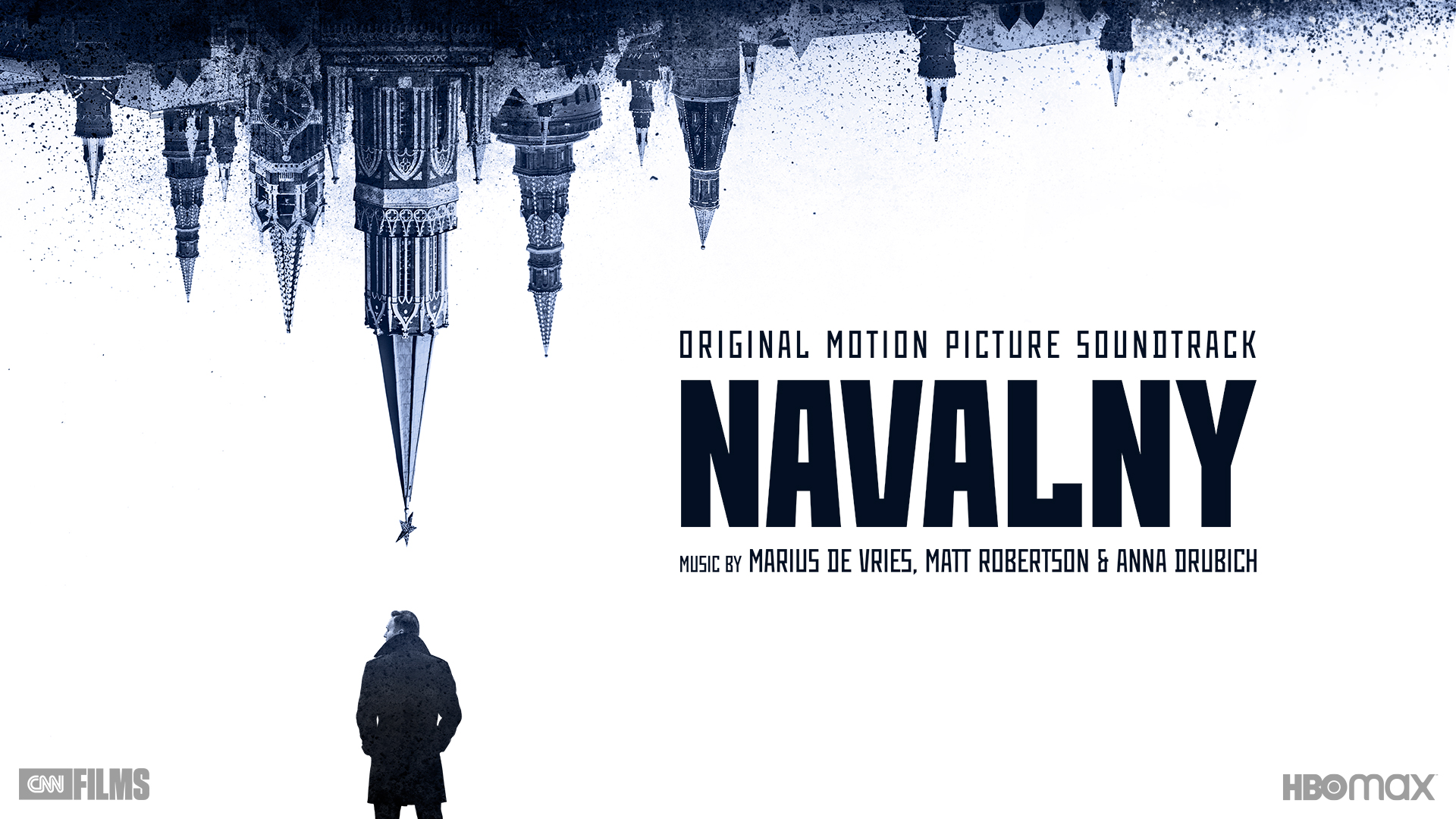
What is it about?
The CNN film “Navalny” follows Russian opposition leader Alexey Navalny, who was poisoned in August 2020 with a nerve agent during a flight to Moscow. The film paints an intimate portrait of one of Russian President Vladimir Putin’s fiercest critics and takes viewers inside the harrowing search for answers following his poisoning.
When and where can I watch it?
Sunday, April 24, at 9 p.m. ET on CNN
How long is the film?
98 minutes
Who is Navalny?
Navalny is a Russian opposition leader, Kremlin critic and activist. He has been a prominent organizer of street protests and has exposed corruption in the Russian government on social media.
He created the Anti-Corruption Foundation, a nonprofit organization that investigates corruption among high-ranking Russian government officials.
In March, Navalny was sentenced to nine years in a maximum-security jail, according to the Russian state-owned news agency TASS, after being convicted on fraud charges over allegations that he stole from his Anti-Corruption Foundation. The Russian state-owned news agency RIA reported that Navalny will appeal the guilty verdict, according to his lawyer.
Who made the film?
Daniel Roher directed the documentary.
“I want audiences to be reminded that bad guys win if people stop caring and stop paying attention, whether it be authoritarians rising in Brazil, Hungary, Turkey, Russia, China — or the US,” said Roher. “Alexey wants to remind us that we cannot be inactive. I want people to focus on that when they think about Alexey.”
It’s 6 p.m. on Sunday in Kyiv. Here’s what you need to know
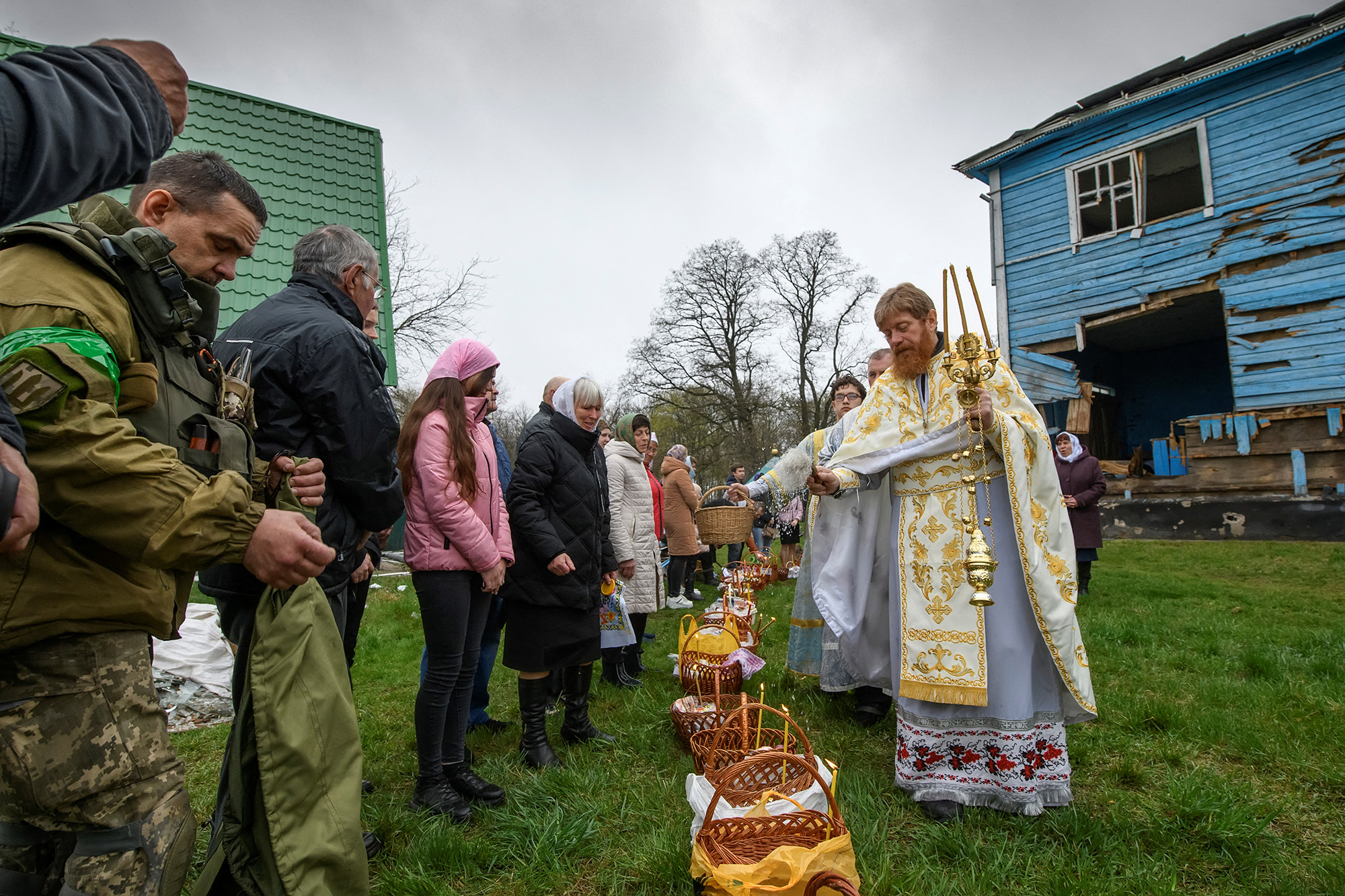
Ukrainian President Volodymyr Zelensky says he will meet top US officials in Kyiv on Sunday, as heavy fighting continues in the east and south of the country over Ukraine’s Easter weekend.
Meanwhile, many Ukrainians are attempting to celebrate one of their most important holidays of the year, Orthodox Easter, two months after the country was thrust into a devastating war
Zelensky said he was “expecting specific things and specific weapons” from world leaders who come to the country, after announcing that he would meet US Secretary of State Antony Blinken and US Secretary of Defense Lloyd Austin in Kyiv on Sunday.
The White House has declined to comment or confirm the potential trip, which would be the first visit to Ukraine by top US officials since the war broke out.
Here are more of the latest headlines on the Russia-Ukraine war:
- Russian forces continuing attack on Mariupol, Ukrainian commander says in Easter message: In an Easter message, Capt. Svyatoslav Palamar, the deputy commander of Ukraine’s Azov Regiment, said Sunday that Russian forces were continuing to bombard the city of Mariupol, underscoring the need for evacuation of civilians and encircled Ukrainian forces. “Christ is Risen, dear Ukraine,” he said. “Today is a big day but even so, the enemy continues to drop aerial bombs, ships fire artillery, cannons fire, enemy tanks continue to hit, infantry tries to assault.”
- White House official says to expect more announcements on US assistance to Ukraine: White House deputy national security adviser Jon Finer said Sunday to expect more announcements on US assistance to Ukraine “in the week ahead,” highlighting the billions of dollars in security aid the US has delivered so far. “We’ve been announcing deliverables, which is a fancy word for things that we are providing to the Ukrainians, to enable their fight just about every day and if not every day, every week, and we will have more to say about that in the week ahead,” Finer said on NBC’s “Meet the Press,” stressing that US assistance has had a “significant” impact.
- Republican congresswoman urges US to restart diplomatic work in Ukraine: Republican Rep. Victoria Spartz of Illinois, who is the first Ukrainian-born member of Congress, on Sunday urged the US to restart diplomatic work in Ukraine, saying the move would send “a strong message for Ukrainian people.”
- More than 370,000 Ukrainian refugees are in Germany: Germany’s federal police has recorded 376,124 refugees from Ukraine to date, according to the country’s Interior Ministry. These are predominantly children, women and elderly people, they said in a Sunday tweet.
- International Committee for the Red Cross says they urgently need “humanitarian access” to Mariupol: The International Committee of the Red Cross said that “immediate and unimpeded humanitarian access” to the besieged Ukrainian city of Mariupol is “urgently needed.” In a press release Sunday, the ICRC said it is “deeply alarmed by the situation in Mariupol, where the population is in dire need of assistance.” Russian forces continued to attack the city on Sunday, Ukrainian Capt. Sviatoslav Palamar said in an Easter message.
- Melitopol mayor says Putin wants to “kill all of Ukrainian nation”: Melitopol mayor Ivan Fedorov, who was detained by Russian forces for five days in March, told CNN Sunday that his city is in a “very difficult and dangerous situation.” Russian forces occupied Melitopol, in southeastern Ukraine, within days of the invasion beginning, but the city has seen sporadic protests since. A new mayor was installed in the city, which is under Russian military control, after Fedorov was kidnapped. Fedorov was later released as part of a prisoner exchange. He told CNN’s Boris Sanchez on “New Day” that Russian President Vladimir Putin’s goal was to “kill all of Ukrainian nation,” starting by occupying its cities.
- Russia is “trying to depopulate the east of Ukraine,” says Zelensky administration adviser: An adviser to President Zelensky’s administration said Sunday that Russia was “trying to depopulate the east of Ukraine,” amid heavy fighting there. “I think the message they’re sending is very clear,” Tymofiy Mylovanov told CNN’s Isa Soares in Lviv. “If you surrender, like Crimea in 2014, nothing is going to happen to you. If you resist, like Donbas, like the east of Ukraine, you’ll be destroyed. (It) doesn’t matter if you’re military or civilians. So the message Russia is sending is, ‘surrender or be erased.'”
- OSCE says several staff have been detained in eastern Ukraine: The Organization for Security and Cooperation in Europe (OSCE) is working to “facilitate the release” of several of its Special Monitoring Mission (SMM) members who have been “deprived of their liberty in Donetsk and Luhansk,” it said Sunday. “The OSCE is extremely concerned that a number of SMM national mission members have been deprived of their liberty in Donetsk and Luhansk,” it said in a statement posted to Twitter. “The OSCE is using all available channels to facilitate the release of its staff.” The SMM is an unarmed civilian division of the OSCE, which is tasked with observing and reporting on conflict zones.
Source: https://www.cnn.com/europe/live-news/russia-ukraine-war-news-04-24-22/h_363d1c2bf048a59a2548a898f2dce0d6

















